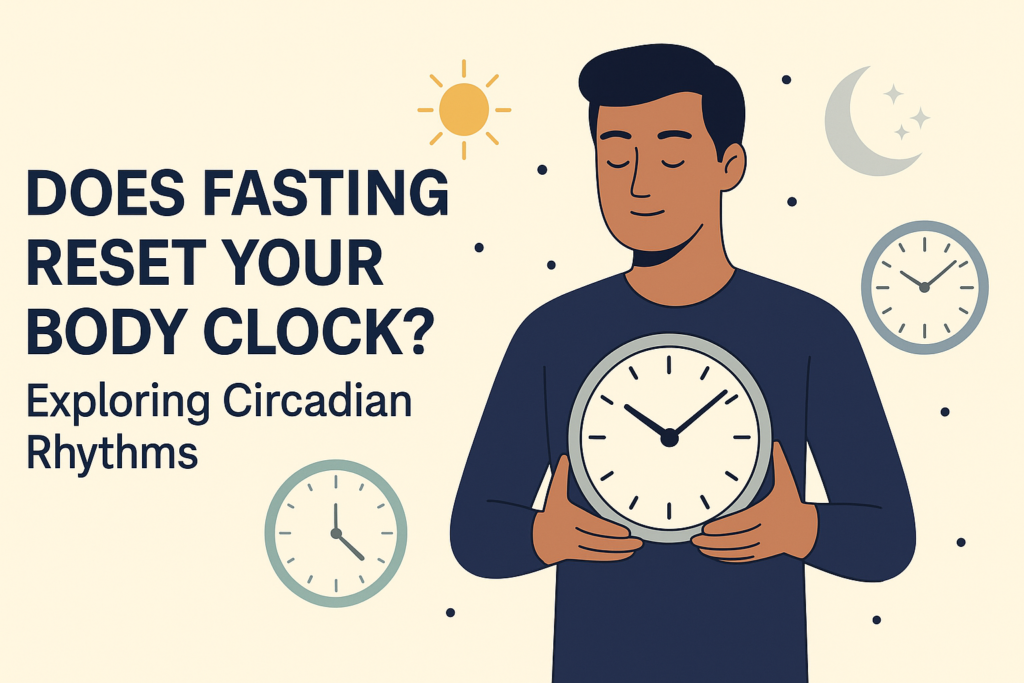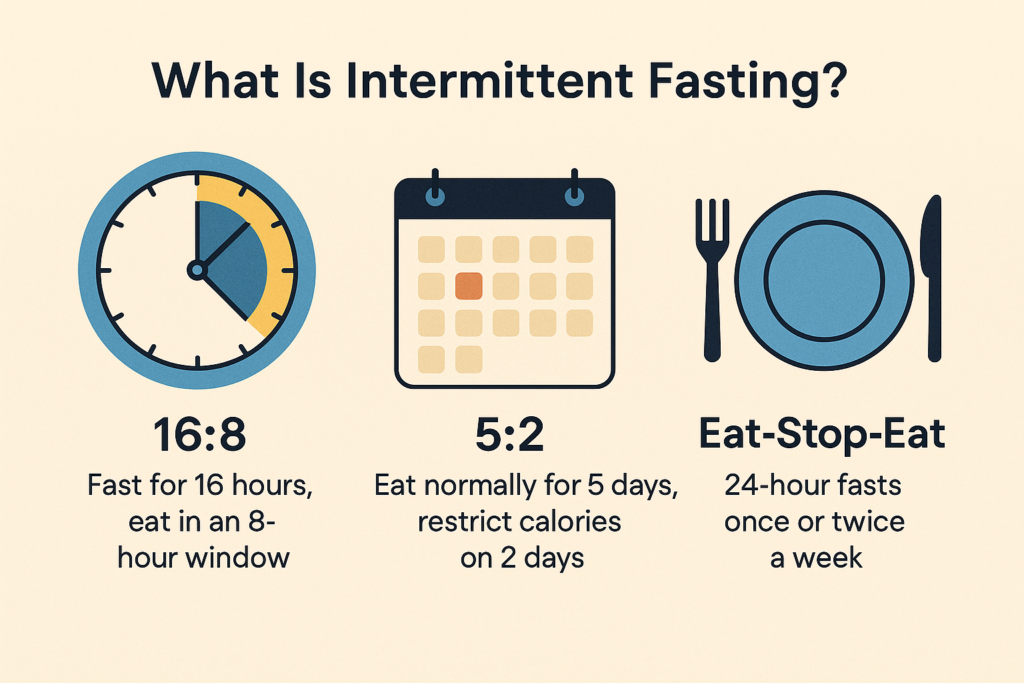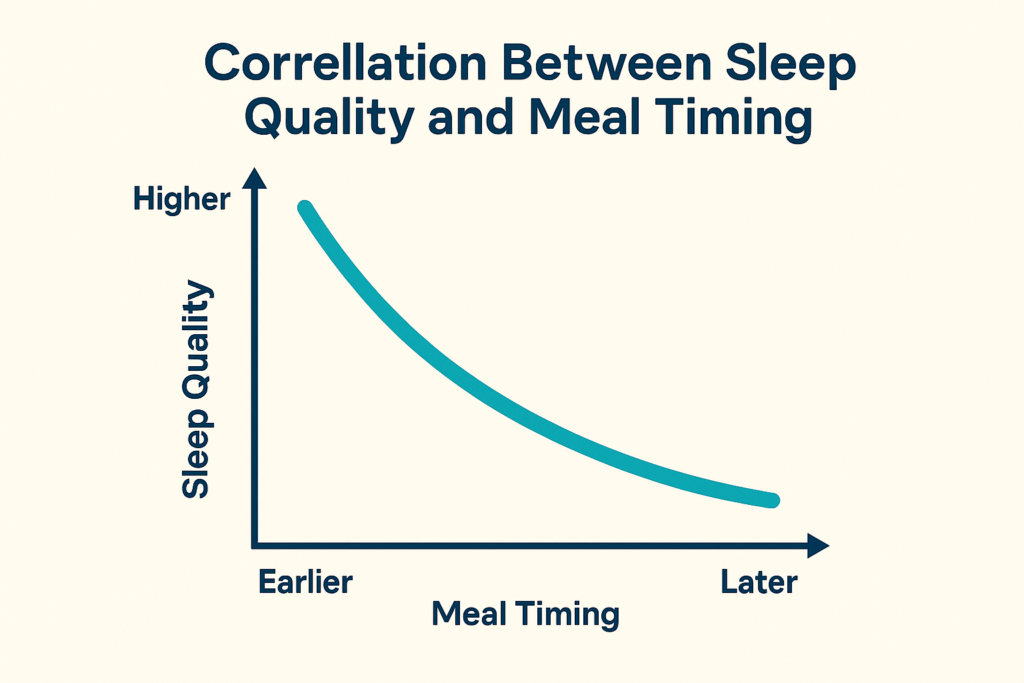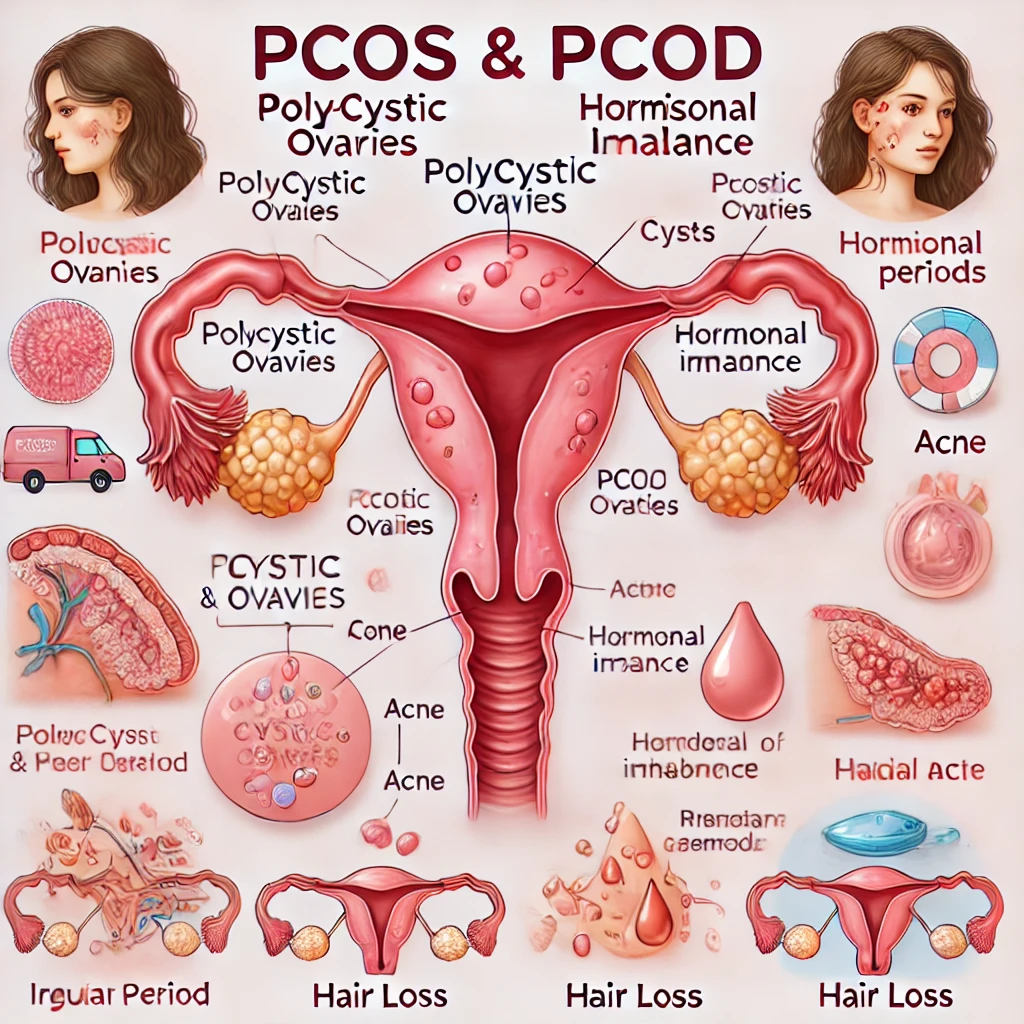Introduction:
Imagine waking up each day feeling refreshed, focused, and fully aligned with your natural energy cycles. Now, what if the timing of your meals—not just what you eat—could help make that happen? That’s where the effects of intermittent fasting on circadian rhythm come in. This connection is capturing the attention of scientists, nutritionists, and health enthusiasts alike.
Circadian rhythms are your body’s internal clock—regulating everything from sleep and hormone production to metabolism and mental clarity. And intermittent fasting, which involves restricting eating to specific time windows, may help “reset” or optimize this clock in surprising ways.
In this post, we’ll break down the science in simple, relatable terms—exploring how fasting aligns with your body’s biological schedule, what the benefits and risks are, and why this matters now more than ever. Whether you’re looking to improve sleep, boost energy, or support long-term health, this guide will help you understand how meal timing might hold the key.

Understanding Your Circadian Rhythm
What is a circadian rhythm, really?
It’s your body’s internal 24-hour clock that governs everything from sleep-wake cycles to hormone release and metabolism.
- Key Components:
- Suprachiasmatic Nucleus (SCN): The “master clock” in the brain, located in the hypothalamus.
- Zeitgebers (“Time Givers”): Environmental cues like light, food, and temperature that sync your body clock.
- Peripheral Clocks: Found in organs like the liver, pancreas, and gut, these clocks respond more to food than light.
🧠 Fun Fact: Light is the primary driver of your brain clock, but meal timing is the main driver of your peripheral clocks—which is where intermittent fasting comes in.
What Is Intermittent Fasting?
Intermittent fasting (IF) isn’t a diet—it’s an eating pattern that cycles between periods of eating and fasting. Common methods include:
- 16:8 (fast for 16 hours, eat in an 8-hour window)
- 5:2 (eat normally for 5 days, restrict calories on 2 days)
- Eat-Stop-Eat (24-hour fasts once or twice a week)

How it works:
- During fasting, insulin levels drop, and human growth hormone increases.
- Your body taps into stored fat and starts repairing itself at a cellular level—aka autophagy.
⏳ Chrono nutrition Insight: Eating in sync with your circadian rhythm (i.e., earlier in the day) may amplify these fasting benefits.
Effects of Intermittent Fasting on Circadian Rhythm
Let’s explore the core keyword: Effects of intermittent fasting on circadian rhythm—and break it down in plain terms.
🔬 1. Resets Peripheral Clocks
When you stop eating late at night and restrict meals to daylight hours, your liver, pancreas, and gut start syncing better with your sleep-wake cycle.
- Studies show that early time-restricted feeding (eTRF) improves insulin sensitivity and metabolic flexibility.
- This enhances hormonal balance and reduces inflammation.
🧪 2. Improves Sleep Quality
Fasting impacts melatonin and cortisol, hormones that regulate your sleep:
- Fewer late-night snacks = less digestive burden during sleep.
- Regular fasting may stabilize REM and deep sleep patterns.
🧬 3. Boosts Cellular Clock Genes
Intermittent fasting can regulate clock genes like BMAL1, PER, and CLOCK—essential for metabolism and cellular repair.
- One mouse study showed that timed feeding enhanced circadian gene expression, even in jet-lagged models.
📚 Reference: Cell Metabolism, 2019
Health Benefits of Realigning Your Body Clock with Fasting
Here’s what syncing your meals with your body clock can do for you:

🌟 Metabolic Health
- Better insulin response
- Lower risk of Type 2 Diabetes
- Improved cholesterol and triglycerides
🛌 Better Sleep and Mental Clarity
- More restorative sleep
- Reduced brain fog
- Enhanced memory and mood
⚖️ Weight Regulation
- Increased fat burning
- Decreased cravings
- Balanced ghrelin (hunger hormone) and leptin (satiety hormone)
💡 Key Takeaways:
- Bold your breakfast. Eat your largest meal earlier in the day.
- Light your dinner. Avoid heavy meals after sunset.
- Consistency is king. Same eating window daily = better results.
Risks, Myths & Ethical Considerations
❌ Not for Everyone
Fasting isn’t a one-size-fits-all solution. It may not be suitable for:
- Pregnant or lactating individuals
- People with eating disorders
- Children or those with certain metabolic conditions
🧩 Myth: Fasting Slows Metabolism
Wrong. Short-term fasting may actually enhance metabolism, though long-term extremes can have adverse effects.
🧪 Risk of Disrupted Sleep
If done incorrectly (e.g., fasting late or skipping nourishing meals), you may:
- Experience hormonal imbalances
- Face disrupted cortisol cycles
- Lose essential micronutrients like magnesium and zinc
⚖️ Ethical Angle
- The biohacking trend around fasting should emphasize informed choice, not peer pressure or diet culture.
- Transparency in how fasting protocols are promoted by influencers is critical.
Future Applications and Global Practices
🌍 Emerging Trends
- Time-restricted eating apps integrating sleep, light, and meal data
- Chronobiology clinics in wellness tourism destinations
- Digital circadian coaching via wearables and AI
📈 Market Stats
- Intermittent fasting market to hit $20 billion globally by 2030
(Source: Market Research Future, 2024)
🌏 Cultural Adaptations
- Many traditional fasting patterns (e.g., religious fasts) already align with circadian health principles—offering cultural wisdom to the modern wellness world.
Global Solutions for Circadian Wellbeing
🛡️ Regulation & Innovation Balance
- GDPR and Digital Personal Data Protection Act (DPDP) frameworks are now guiding wearable fasting trackers and nutrition apps.
- Emphasis on consent, data security, and user autonomy is growing.
🤝 Practical Advice
- Educate before promoting fasting apps or schedules.
- Localize based on food culture, sunlight hours, and work patterns.
- Use circadian-aligned meal plans in hospitals and wellness centers.
FAQs
1. Does fasting really help reset your sleep cycle?
Yes. Intermittent fasting—especially when meals are aligned with daylight—can enhance sleep quality and hormone regulation.
2. What is the best time to eat for circadian rhythm?
Ideally, between sunrise and sunset. Aim to finish eating by early evening to allow your body to enter rest mode naturally.
3. How long does it take for intermittent fasting to affect the body clock?
Some people notice improvements in sleep and energy within 1–2 weeks, though full circadian realignment may take 3–4 weeks.
4. Can I fast if I have a night shift job?
It’s tricky. Try adjusting your eating window to daylight hours on your off days, and use light exposure therapy to reset your SCN.
5. Are there side effects of fasting on circadian rhythm?
If done improperly (e.g., skipping nutrients, irregular schedules), it can disrupt cortisol and melatonin balance.
Conclusion
Your body runs on time—biological time.
And intermittent fasting, when practiced mindfully, may be the key to syncing your metabolism, sleep, and energy with your natural rhythm.
So, what do you think—can fasting reset your body clock?
Share your thoughts, experiences, or questions in the comments below!
🔗 References:
Ready to Stay Ahead? Bookmark our guide Technology and AI for updates!


